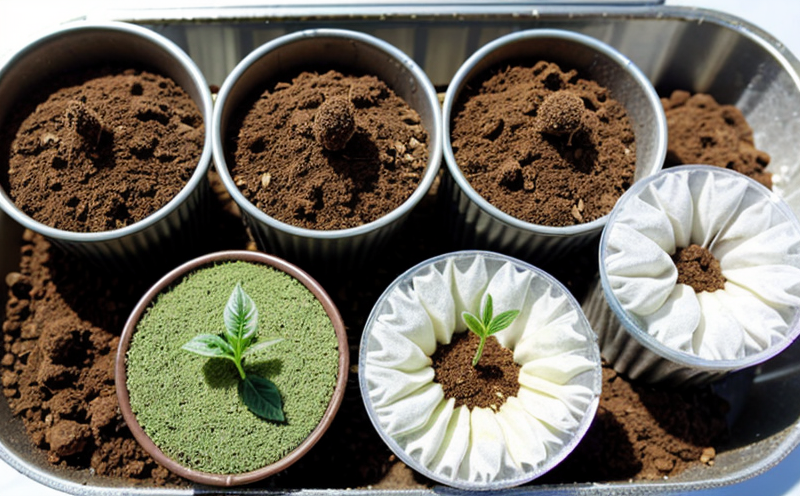Seed Contamination Testing (Weed Seeds)
In the agricultural and forestry sectors, seed quality is paramount. Contaminants such as weed seeds can significantly impact crop yield, reduce farm productivity, and increase costs associated with pest control and crop management. Seed contamination testing ensures that imported or domestically produced seeds meet stringent quality standards before they reach commercial markets.
Our laboratory specializes in providing comprehensive seed contamination testing services to identify weed seeds within lots of agricultural and forestry seeds. This service is critical for ensuring compliance with international standards and local regulations, which often mandate the absence of certain weed species or a maximum allowable percentage of weed seed content. For instance, ISO 3682-1:2015 specifies methods for determining the impurities in cereal grains; this standard serves as our baseline for evaluating contamination levels.
Our testing process begins with thorough sample preparation. Each lot undergoes initial inspection to ensure it meets the required purity specifications. From there, we employ advanced analytical techniques such as near-infrared spectroscopy (NIRS), microscopic examination, and even DNA barcoding to accurately quantify weed seed content. The NIRS method is particularly effective for rapid analysis of large samples, providing reliable results within hours instead of days.
The methodology also involves statistical sampling to ensure that the tested sample represents the entire lot accurately. This approach helps us maintain consistency across multiple tests and ensures our findings are reproducible. Once the contamination levels have been determined, we issue detailed reports outlining the results along with recommendations for further action if necessary. These reports adhere strictly to international standards like ISO 3682-1:2015 to guarantee their credibility.
By partnering with us, your organization can benefit from our expertise in identifying and quantifying weed seeds in agricultural and forestry seeds. This service not only enhances product quality but also supports compliance efforts by helping businesses avoid potential penalties associated with non-compliance issues. It contributes significantly towards maintaining sustainable practices within the industry.
Our commitment to accuracy is unwavering, ensuring that every test conducted adheres strictly to internationally recognized standards such as ISO 3682-1:2015 and ASTM D4579. We use cutting-edge technology combined with experienced personnel who possess extensive knowledge of agricultural sciences and seed quality assurance.
- Advanced analytical techniques including NIRS, microscopic examination, and DNA barcoding
- Statistical sampling for reliable representation
- Compliance with international standards like ISO 3682-1:2015
- Detailed reports aligned with recognized guidelines
Applied Standards
In conducting seed contamination testing, we strictly adhere to several internationally recognized standards that provide a robust framework for ensuring accuracy and reliability. These include:
- ISO 3682-1:2015: This specifies methods for determining the impurities in cereal grains, which forms the basis of our testing procedures.
- ASTM D4579: This standard offers guidelines on sampling and analytical techniques used to determine the presence of weed seeds in agricultural or forestry seeds.
Scope and Methodology
The scope of our seed contamination testing encompasses a wide range of agricultural and forestry seeds, including cereals, legumes, oilseeds, and various other crops. We analyze these samples to detect the presence of unwanted weed species that could potentially harm crop yields or lead to economic losses.
Our methodology involves several key steps:
- Sample Preparation: Each seed lot undergoes careful inspection and cleaning to remove any debris or foreign materials. This step ensures that the sample used for testing accurately represents the entire batch.
- Analytical Techniques: We utilize advanced analytical tools such as near-infrared spectroscopy (NIRS), microscopic examination, and DNA barcoding to identify and quantify weed seeds within the samples.
- Data Analysis: Once the contamination levels have been determined through these methods, we analyze the data statistically. This ensures that our findings are both accurate and representative of the whole seed lot.
Quality and Reliability Assurance
To maintain high standards of quality and reliability in all our tests, we implement rigorous quality assurance measures. Here’s how we ensure consistency:
- Certified Personnel: Our team consists of highly qualified professionals with extensive experience in agricultural sciences and seed quality assurance.
- State-of-the-Art Equipment: We utilize top-tier instrumentation to conduct our tests, ensuring precise measurements every time.
- Regular Calibration Checks: All analytical equipment undergoes regular calibration checks to maintain accuracy over time.
- Method Validation: Our testing methods are validated against recognized standards like ISO 3682-1:2015 and ASTM D4579, ensuring they meet the highest quality benchmarks.





